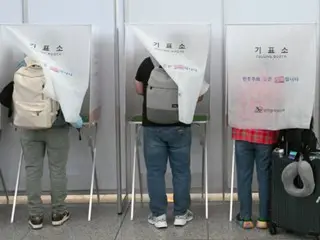When the generative AI developed by Google was launched in South Korea in January this year, suspicions arose that the company was collecting excessive data for AI training, and in February the committee announced that it would investigate the collection of user data.
The committee announced that it would suspend new downloads of Deepsheep's app in Japan until the review on its handling of the service is completed.
The committee revealed that it had discovered that the personal information of Korean users had been provided to companies in China and the United States without permission. Meanwhile, Deepseek said it has already made improvements to the issues pointed out by the committee.
Nam Seok, director of the investigation and coordination bureau of the committee, said, "If Deepseek accepts and implements the advice and orders of the South Korean government, it will be able to resume services."
The news agency Yonhap News reported that "services in Korea are expected to resume in the near future." Deepseek is attracting attention as a conversational AI service alongside ChatGPT and Gemini.
DeepSeek's greatest feature is its low development and operation costs. The development costs were about $5.6 million (about 870 million yen), according to the Open
Although it is about one-tenth the size of AI (OpenAI) ChatGPT, it is said to have performance comparable to ChatGPT.
The number of researchers involved in the development was only about 140, far fewer than the more than 1,000 people at Open AI. The latest language model, R1, was released in January of this year.
As soon as it was released, it became the most downloaded free app on Apple's App Store. The AI of an unknown Chinese startup company was able to compete with the US Apple despite its low cost.
The fact that it has performance comparable to that of cutting-edge products shocked the world. Meanwhile, China's National Intelligence Law requires Chinese companies and citizens to cooperate in intelligence activities, and the support of DeepSeek
As soon as the service was launched, concerns arose that using the service would allow information to be extracted by China. Due to these concerns, companies and government agencies around the world have taken measures such as restricting its use.
In South Korea, the Ministry of Foreign Affairs and the Ministry of Trade, Industry and Energy have independently blocked access to Deepseek.
Companies such as Kao and the telecommunications giant LG U+ have banned Deepseek from using the app for business purposes. The Personal Information Protection Commission has temporarily suspended Deepseek's services until the problem is fixed.
Deepseek accepted the recommendation and suspended new downloads in South Korea from mid-February.
The committee investigated the actual state of Deepseek's personal information processing while the service was suspended, and on the 24th of this month,
The results were announced. It was revealed that during the period when the app was available for download in South Korea, users' personal information was transferred without permission to cloud service platforms in China and the United States.
The information sent without permission included the user's device information, network environment, and prompts for the AI.
It has been confirmed that the content users entered into AI prompts was passed directly to Volcano, an affiliate of ByteDance, the parent company of the app TikTok.
Yonhap News reported that "The number of Deepseek AI users in South Korea was said to be about 50,000 people per day on average, and the personal information of about 1.5 million people was stolen in the one month that the service was available.
"It is believed that the information was leaked overseas," the committee said. The committee recommended that Deepseek immediately destroy the contents of the user prompts it provided to Volcano.
Deepseek has already indicated its intention to comply with all of the measures recommended by the committee, and has implemented an "opt-out" feature that allows users to refuse to have their input information used for AI learning.
The committee also believes that most of the issues pointed out have been resolved, and that the service in Korea will be improved soon.
Regarding this trend, the Korean newspaper Seoul Economy said, "As American big tech companies such as OpenAI and Google are making inroads into the Korean market,
"If Deepseek, which has a good track record, were to resume its services, it could become a threat to Korean companies," the report said.
Following the emergence of Pseek, the Korean AI industry is stepping up its AI technology and rushing to develop its own version of Deepseek. Among them, Naver is working on its self-developed generative AI, Hyper
The company has released three lightweight models of "CloverX" for free. It is promoting the product as "superior to OpenAI and DeepSeek in terms of Korean language understanding."
At the Naver Cloud Tech Summit, Naver Cloud CEO Kim Yu-won emphasized, "In an age where AI is becoming a social infrastructure, we must ensure that we have an independent AI."
did.
2025/04/28 13:11 KST
Copyrights(C)wowkorea.jp 5
















